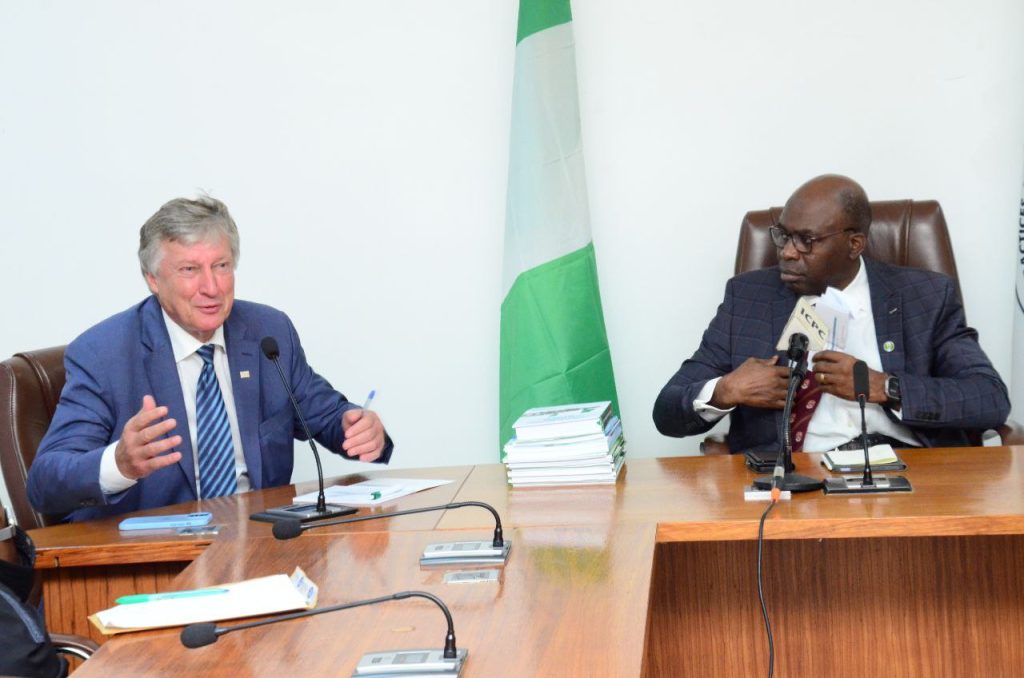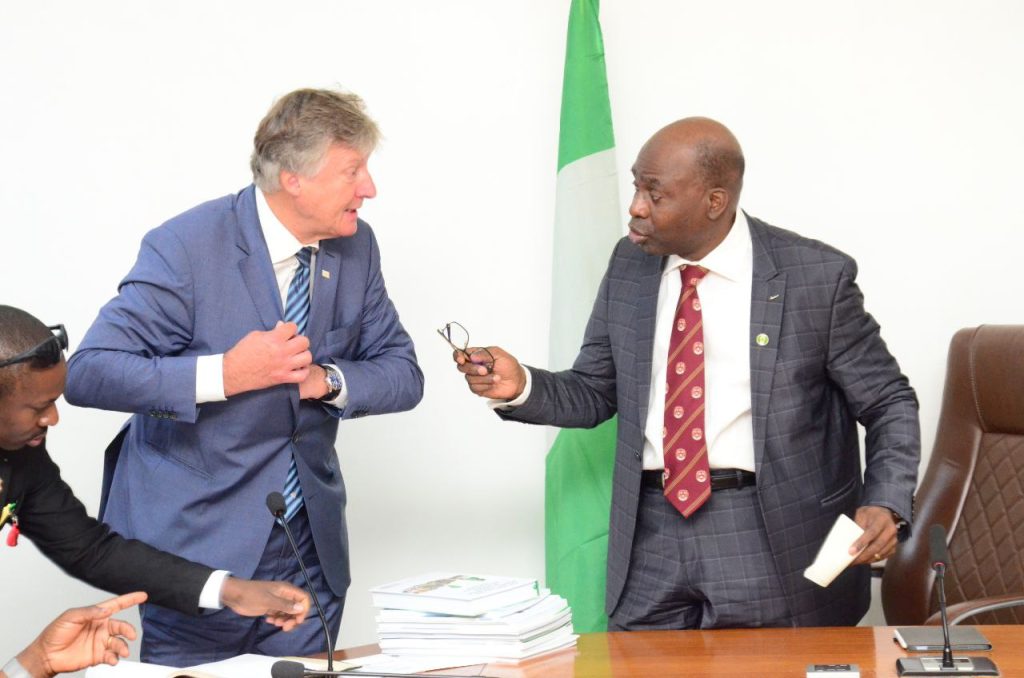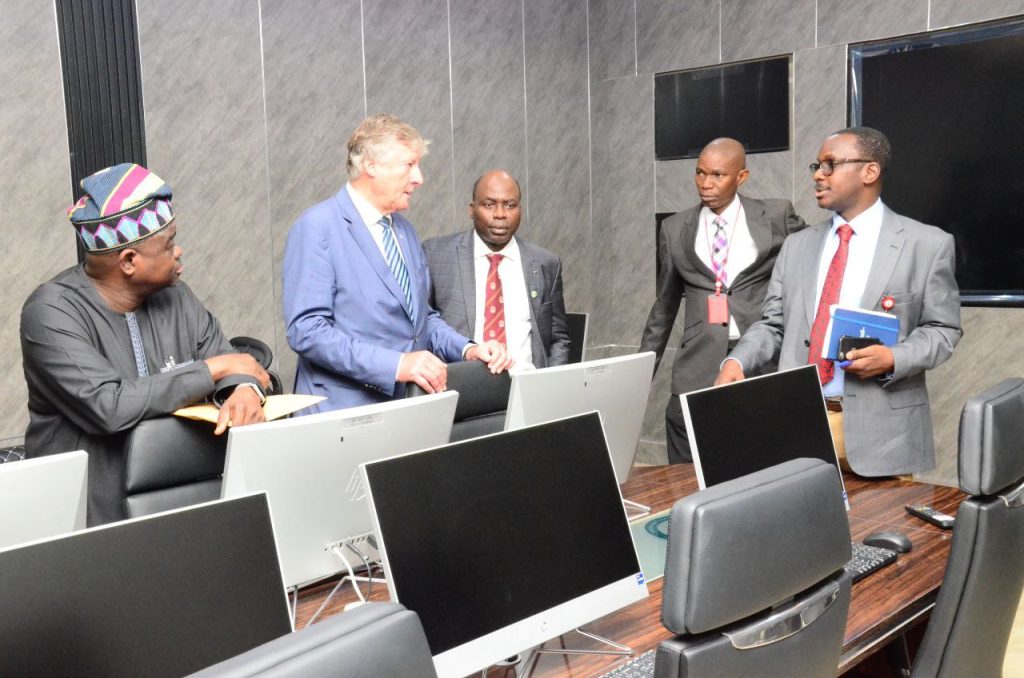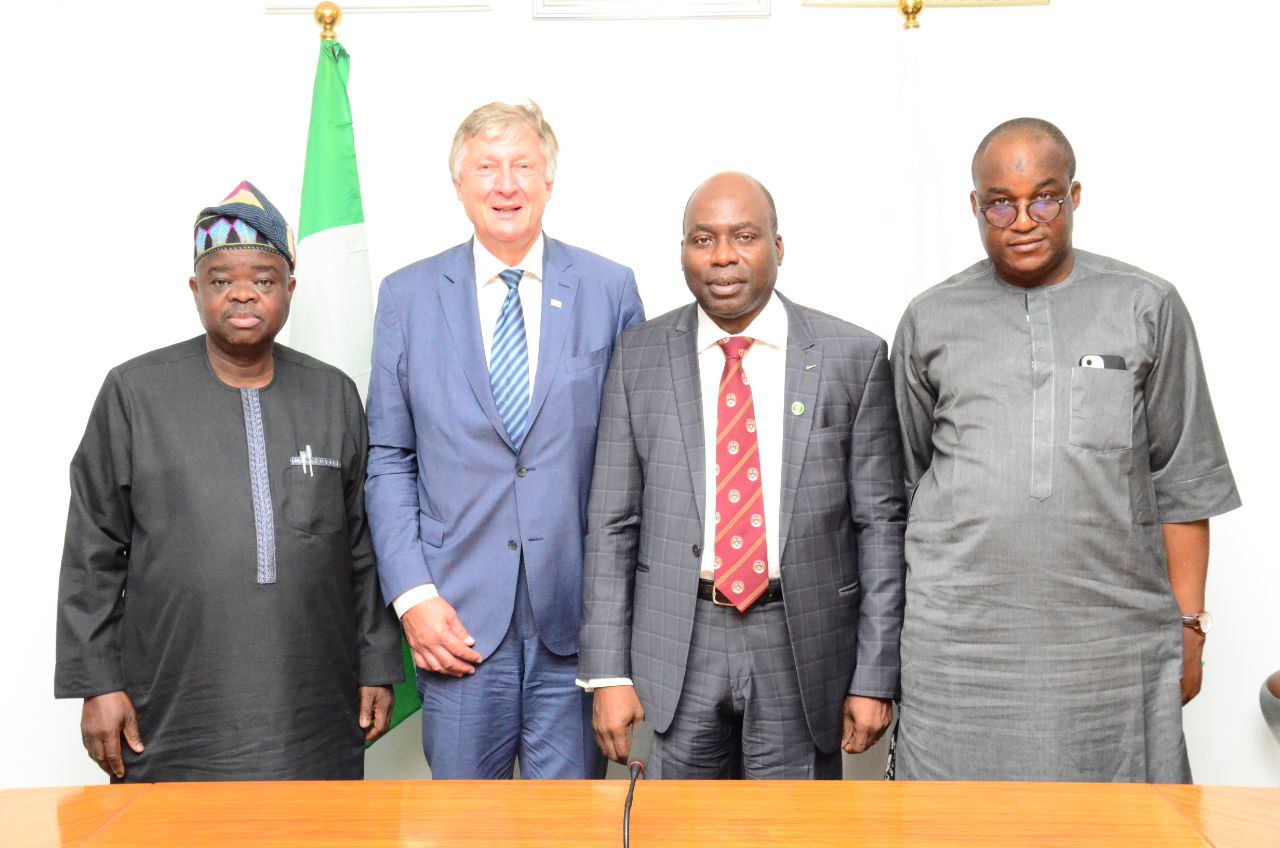…calls for ICPC’s involvement in developing a new measuring tool for corruption
The Dean of the International Anti-Corruption Academy, IACA, in Vienna, Mr. Thomas Stelzer, has declared that the measuring tool used by Transparency International (TI) in her Corruption Perception Index (CPI) had a lot of gaps that needed to be bridged, stating that “a lot of governments are doing so much but do not get credit for them.”
Mr. Stelzer made the observation when he visited the ICPC headquarters as part of activities of his working visit to Nigeria.
Stelzer, who is IACA’s Executive Secretary of Assembly of Parties, stated that TI’s CPI puts governments in difficult positions because no matter how hard governments of nations work, they are exposed and reduced to the perception of constituents.

Speaking on a way out, the IACA Dean said that IACA was working on measuring corruption as part of its research work by putting together all the expertise, bringing on board everybody who has something to contribute to the project in order to see the right methodology to adopt for better results.
“We are totally imperative, we are transparent, and we want everyone to participate from the beginning so that we can hold everybody accountable in implementing later what we might have agreed on and we would also like your Academy to contribute,” he stated.
Addressing the work of IACA, Stelzer explained, “IACA is the only intergovernmental, international organisation that concentrates on the holistic fight against corruption; and enjoys the status of an institution of higher learning, authorized to offer academic degrees, offering technical assistance and capacity building to practitioners to facilitate implementation of the provisions of the United Nations Convention Against Corruption (UNCAC).”
He revealed that IACA engages in capacity building through education and non-academic training by offering technical assistance to people from different sectors including investigative journalists and members of the private sector.
“One of the reasons I came to visit Nigeria is to see how we can scale up this traditional strong cooperation as well as take things forward with focus on how we can add value to the national efforts in the fight against corruption,” the IACA Dean concluded.

In his remarks, the ICPC Chairman, Prof. Bolaji Owasanoye SAN, OFR, welcomed the Dean to the country and gave a brief background of the Commission vis-à-vis her statutory mandate. He said even though ICPC was set up in year 2000, a few years before UNCAC, it commendably reflects UNCAC’s principles and focus which can be seen in the Commission’s tripartite mandate.
He gave a rundown of the 3-pronged mandate of enforcement, prevention and enlightenment, stating that although not easily measurable, ICPC makes a lot of progress under its preventive mandate, which is not measured nor captured by the CPI, even though the efforts contribute massively to the fight against corruption.
He mentioned some other specific projects ICPC engaged in to include being the secretariat for inter-agency committee on stopping Illicit Financial Flows (IFFs) in Nigeria, and in that capacity, organizing capacity building on slippery areas such as tax evasion, transfer pricing, trade mis-invoicing for organisations connected to IFFs; issuance of advisories to government on dumping the use of confidentiality clauses in extractive industry and eradication of the use of tax waivers for multinational companies.
Other activities, the ICPC boss continued, include designing guidelines for the private sector to recognise vulnerabilities to IFFs in their operations; being central in propagating the Common African Position on Assets Recovery (CAPAR) by collaborating with the High-Level Panel chaired by former South African President, Thabo Mbeki; training of the media on using perception tools amongst other activities.
The Chairman also revealed that ICPC through its training arm, ACAN, has begun conducting surveys of experiences with corruption, in order to know how to adjust and deal with issues instead of relying solely on the annual report by TI.

“We would love to be able to partner with IACA to become a regional hub for some of our activities and those of IACA, to exchange staff once we agree on the parameters and to test the waters by having some activities at the regional level jointly with funding from partners to build capacity within anti-corruption agencies and in the broader context among stakeholders and public sector players towards diminishing corruption,” Professor Owasanoye stated.
The highlight of the visit was a tour of the facilities at the Commission’s headquarters.

